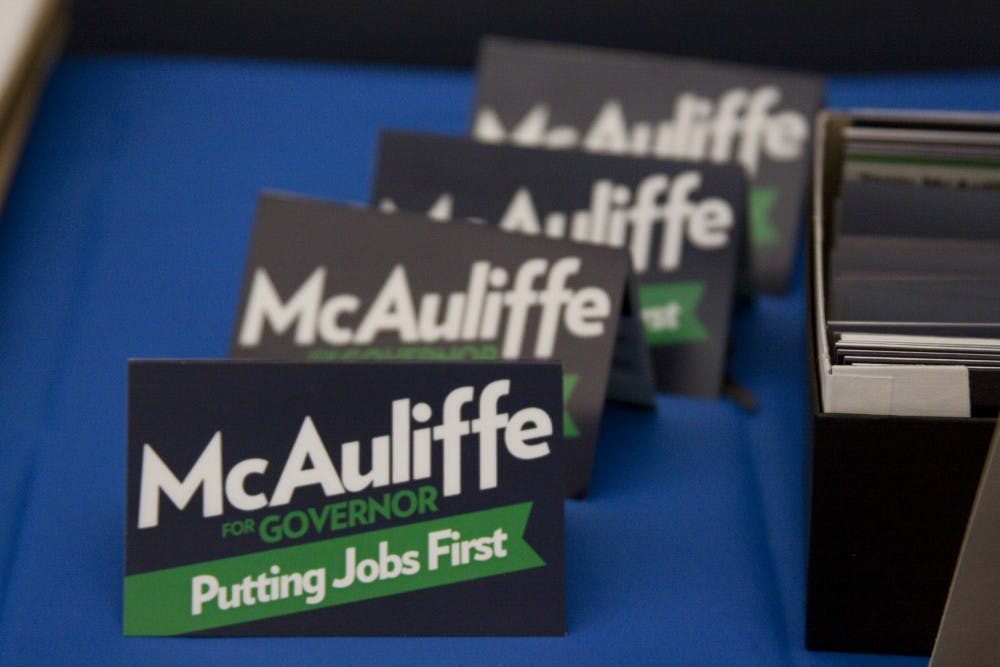Virginia Democratic gubernatorial candidate Terry McAuliffe spoke to more than 80 University and community members Monday evening at a meet and greet in Newcomb Hall.
McAuliffe thanked volunteers for making the University his top source for signatures to get on the ballot before outlining his campaign platform of job creation and economic development.
“I want to focus on building an economy for the 21st century,” McAuliffe said.
Though he has never served in elected public office, McAuliffe said his business and political experience qualify him to serve as governor.
“I’ve actually done [job creation] my whole life,” he said. McAuliffe added that he started his first business tarring driveways at age 14.
If Richmond does not address transportation funding, the state transportation fund will run out and the state will no longer be able to match federal funding, McAuliffe said.
“We can’t afford to stop the billion dollars in transportation funding because in 2017 Virginia will be one of the few states in the nation that will no longer be able to accept federal highway matching funds,” he said. “As governor, I can’t bring businesses to Virginia if you’re stuck in traffic. I live in Northern Virginia, [where we] were stuck in traffic 73 hours per year.”
The future governor will also have to face a time of crisis in funding for education, McAuliffe said. He condemned his presumed opponent, current Attorney General Ken Cuccinelli, for using taxpayer money to sue the University for access to research documents of former University Environmental Sciences Prof. Michael Mann.
McAuliffe said Cuccinelli is divisive on social issues, and he expressed support for LGBT rights and the DREAM Act, which makes it easier for illegal immigrants who came to America at a young age to attain citizenship.
“We’ve got to make this a welcoming state,” McAuliffe said.
Democratic candidates are increasingly reliant on younger voters, said Geoff Skelley, a political analyst for the University Center for Politics.
President Barack Obama won two-thirds support among voters under the age of 30 in the 2008 presidential election, and Skelley said McAuliffe was likely searching for a similar margin of victory in Virginia.
No one from the Cuccinelli campaign could be reached for comment, but Skelley predicted Cuccinelli would not reach out to younger voters to a similar extent.
According to a Feb. 20 poll by Quinnipiac University, Cuccinelli and McAuliffe are tied at 38 percent with a 2.9 percent margin of error, leaving many voters undecided at this stage in the race. If Lt. Gov. Bill Bolling runs as an independent, the Feb. 20 poll shows McAuliffe with a lead within the margin of error.







